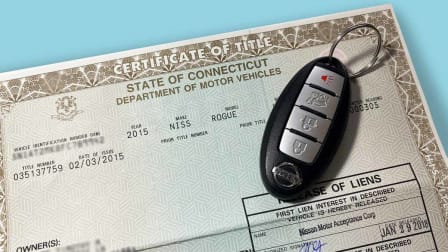Building a Better World, Together
Join with us to make a safer, fairer, healthier marketplace

What's at stake: Student debt in the U.S. now adds up to almost $1.7 trillion. That makes student loans the second-largest class of household debt in the country, trailing only home mortgages and ahead of credit card and auto loan debt. On average, 45 million borrowers owe more than $37,000 each.
That kind of debt was hard enough to manage before the COVID-19 pandemic. Now, with millions of jobs destroyed and the U.S. economy struggling to right itself, it represents a full-blown crisis for many students and their families.
Making matters worse, the system for repaying student loans has become complex, confusing, and even abusive—and is woefully lacking in consumer protections.
Student loan servicers—companies such as FedLoan Servicing, Great Lakes, Navient, Nelnet, and Sallie Mae—are the main point of contact for many people trying to pay off their loans and are supposed to be there to help. Instead, they sometimes add to borrower burdens: State and federal investigations have shown that some of these for-profit companies routinely lose paperwork, misapply payments, provide borrowers with inaccurate information, and even steer borrowers into more costly repayment options.
How CR has your back: Consumer advocates at CR have been working at the state and national levels to make the system work better for everyone. In September, that effort took a major step forward with the signing of California's Student Borrower Bill of Rights, the strongest such protections in the nation.
The law, co-sponsored by CR, takes aim at abuses that make student loan debt more costly and trigger defaults. Among other things, it requires loan servicers to act in the best interests of borrowers—a commonsense principle that, unfortunately, is often flagrantly ignored.
The law also mandates that loan servicers apply payments in a way that minimizes extra fees, improve their record-keeping, and train staff to provide accurate information about repayment options.
And it establishes a student loan ombudsman, a designated advocate for borrowers who will investigate consumer complaints, issue reports to the state legislature, and refer violations to enforcement authorities.
About a dozen other states have passed legislation to expand student loan oversight since 2015, when Connecticut became the first.
What you can do: If you're struggling to make your student loan payments, tell us your story.
A New Watchdog
What's at stake: Ten years ago, CR successfully pushed for a federal watchdog that would make sure banks, lenders, and other financial companies treat consumers fairly—and that could put a stop to fraud and other abuses in the financial marketplace.
But in recent years, that agency—the Consumer Financial Protection Bureau—has scaled back enforcement of consumer protection laws and reduced penalties on firms caught abusing customers. And this is happening even as the COVID-19 crisis leaves Americans especially vulnerable to financial scams and predatory lending.
How CR has your back: As with student loans, CR has been pushing for state laws that would fill regulatory gaps at the federal level—and, again, efforts in California are paying off.
In September, as part of its budget process, the state created a CFPB-like Department of Financial Protection and Innovation. With broad jurisdiction over the financial services industry, including authority to oversee debt collectors and credit reporting agencies, the agency will monitor the marketplace for patterns of abuse and seek relief for consumers ripped off by financial firms.
"This proposal should serve as a model for other states seeking to strengthen oversight of the financial industry and ensure that consumers are treated fairly when they pay their bills, can manage their debts, and have a real shot at building family wealth and security," says CR senior policy counsel Suzanne Martindale.
What you can do: Learn more about protecting your money.
CR Taking a Stand
• Broadnet Teleservices wants the Federal Communications Commission to rule that the current requirement that robocalls be made only with a consumer's prior consent doesn't apply to calls by state and local governments. Fearing a new avalanche of robocalls, CR is opposing the request.
• CR is also fighting a Department of Energy proposal that would poke holes in a rule limiting the water flow of showerheads to 2.5 gallons per minute. By redefining each nozzle of a multinozzle fixture as a showerhead, the move could waste water and energy—and swell consumer utility bills.
Editor's Note: This article also appeared in the December 2020 issue of Consumer Reports magazine.



















